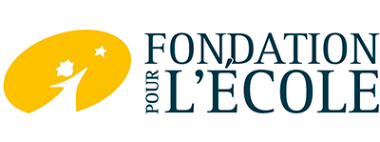



Catholic parents told freedom in education essential to democracy
By Deborah Gyapong
Canadian Catholic News
OTTAWA (CCN)—The co-founder of an independent school movement in France told Catholic parents in Montreal Dec. 7 parental rights freedom of education are essential to democracy.
“I tried to explain to them we have to face the same situations and the same problems in Canada, in Quebec and in France,” said Anne Coffinier, the president and cofounder of Créer son école association and la Fondation pour l’école in France in an interview. “We are in a situation where the state wants to take all the power, the rights and the duties that normally belong to the parents.”
A leader of a growing independent Catholic school movement in France, Coffinier spoke to a conference organized by the Association of Catholic Parents of Quebec (APCQ) on the theme: “Education, a project of the family and of the school.”
“When you are in a country where the state is the only actor, the only educator, you have no diversity, you have no pluralism, and a real democracy is no longer possible,” she said. “To have a democracy, you have to have a debate and to have a debate you have to have people with various points of view.”
“If everyone has the same view, the same background, the same ideas, then you just have an administrative way of running the state and no more democracy, no more freedom of religion, freedom of conscience or freedom of expression,” she said.
France’s education ministry is motivated by 19th Century ideas that to be free one has to be “delivered from all sorts of roots, traditions, loyalties and links,” she said. “When you are sort of ‘brand new’ you can be a free citizen.”
There is also the view the family is the place where “archaic” ideas are imposed on children and “the mission of state schools is to deliver the children from the obscurantism which is coming from the family,” she said. Parents are “dangerous” in that they make it difficult for the child to “enter modernity.”
Coffinier addressed about 100 parents and educators who also heard from Montreal Archbishop Christian Lépine, constitutional lawyer Jean-Yves Cote, and Loyola High School principal Paul Donovan.
Quebec Catholic parents face the province’s mandatory Ethics and Religious Culture program (ERC) that led to a Supreme Court of Canada decision in the Drummondville parents’ case that upheld Quebec’s education minister’s decision parents could not exempt their children from the program. The court decided the parents had not proven the ERC would harm their children’s Catholic faith.
The education minister has forced Loyola High School, a private Catholic school in Montreal, to teach the ERC from a “neutral” standpoint instead of allowing the school to teach world religions and ethics from a Catholic perspective. That case will be heard by the Supreme Court of Canada in March.
France’s culture of secularism or laicity, that’s seeks to push religion out of the public square, is similar to that in Quebec. “I have the impression it is worse in Quebec,” said Coffinier.
Independent Catholic schools have sprung up in France, despite its state-funded private Catholic school system. The “state is more and more strict with them,” she said. “They have the same curriculum, programs, teachers, grants, books and the same learning time-table.”
The Catholics schools thus are very similar to the public schools. Over the past ten or 15 years, over 600 “totally independent schools” run by parents and teachers, “mainly Catholic” have sprung up in France.
Her foundation came into being to support the schools, train teachers, defend them in court and lobby to protect their rights.
Though poor, with no state funding, the schools keep growing in number: last year 37 new schools came into existence; the year before 35; before that 31; before that 25, she said. “It’s a real hope for a lot of people.”
This is happening despite an economic crisis in France. “People are reacting and forming schools for religious and educational purposes,” she said. “People are disappointed by the schools and try to react to protect their children.”
Though the French bishops’ conference as a whole has been silent on the issue, a number of prominent bishops actively support the movement in their dioceses, she said.
Coffinier, a former diplomat, and some lawyers formed the Créer son école as an association in 2004, but realized the need for a charitable foundation that came into existence in March 2008. This foundation raises about €3 million each year that it gives back to the schools, she said.
The foundation is pushing for the creation of a voucher system and tax credits so that all parents can have a choice of education, she said.
“I think the problem is not just the ERC,” Coffinier said. “The problem is all the curriculum you have.”
There is no moral coherence; no sense of the importance of classical literature, she said.
“A school has to conserve the treasure of civilization, the treasure constructed by our ancestors, the best, the major masterpieces in French, in art, all these things are to be passed to the next generation,” she said. “It’s our responsibility to give to our children what we received ourselves.”
“Now when we look at the situation of Quebec education, the chain is broken,” she said. “The new generation are strangers to the culture of their own country or to their own parents. This is really a concern for me.”
Great literature and philosophy have been abandoned for shallower contemporary texts; there is no sense in questioning whether the text says anything about the meaning of life, of what it means to be human, she said. “There is the impression the meaning of life and truth are just optional. There is no chance to touch the truth.”
“The Christian school is a school which tries to create a huge thirst for God, for truth,” she said.
“It’s important for us, if we want to have real Catholic schools, we have to have really high expectations in literature, philosophy, history, the arts, all cultural elements, to have a good use of reason and cultural acuity that is so compulsory if you want to understand the faith,” she said.
Partager sur :
Facebook
Twitter
Pinterest
WhatsApp

